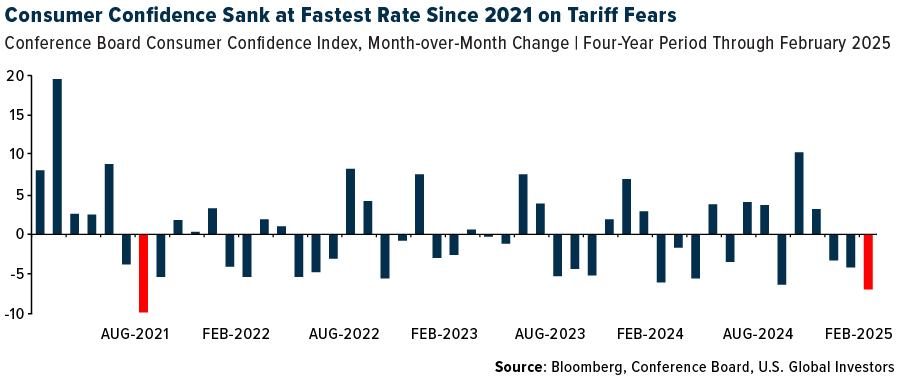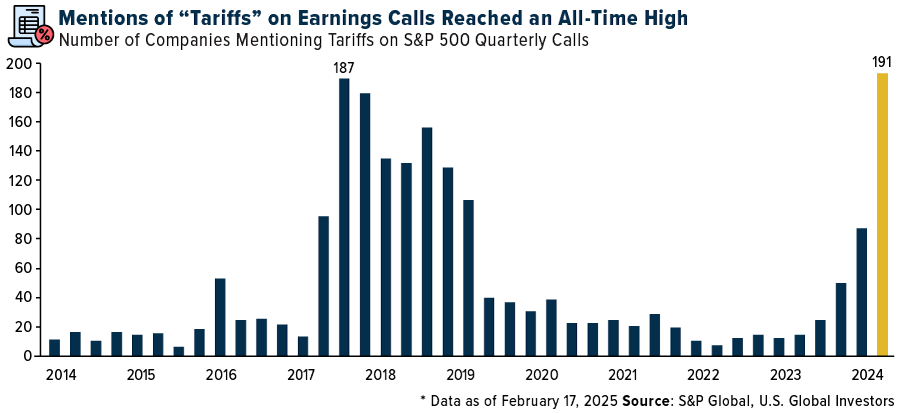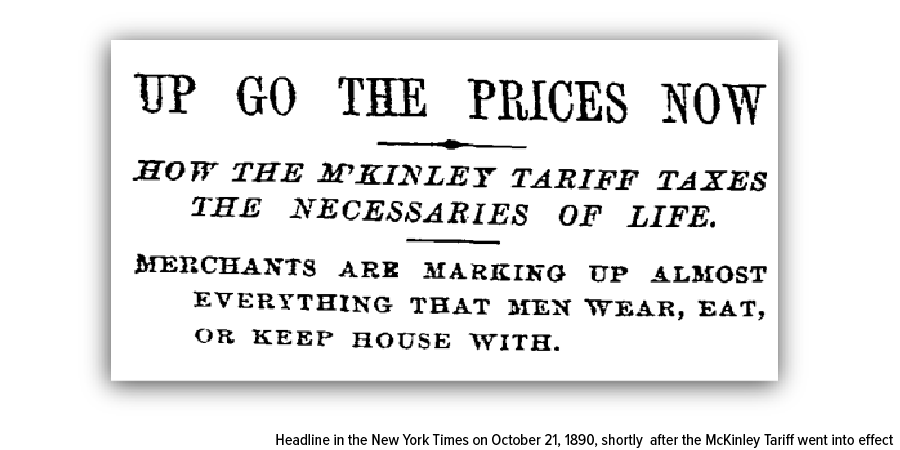Greater than a century in the past, then-Consultant William McKinley pursued an aggressive tariff technique that sought to guard American business and cut back reliance on international imports. The McKinley Tariff Act of 1890 raised import duties to a mean of fifty%, one of many highest ranges in U.S. historical past.
The logic was easy: If international items had been costlier, Individuals would purchase home merchandise, fueling financial enlargement.
However the outcomes weren’t so easy. As an alternative of strengthening America’s commerce place, the tariff triggered retaliation from different nations. Costs rose, notably for middle- and lower-income Individuals, and political backlash adopted. Within the 1890 midterm elections, voters revolted: McKinley misplaced his seat, and Democrats took management of the Home.
On the time, some Republicans dreamed of annexing Canada, believing that the financial strain would push Canadians to hunt statehood. As an alternative, the tariff had the other impact—Canadian nationalists rallied towards what they noticed as financial coercion. The nation deepened its ties with the British Empire, reinforcing the very commerce boundaries the U.S. sought to disrupt.
Tariffs, Commerce Deficits and Client Confidence
Quick ahead to right this moment, and we’re seeing some eerily related traits, beginning with a rise in Canadian satisfaction. As a consequence of a few of President Donald Trump’s antagonistic rhetoric, we noticed Canadians boo the U.S. nationwide anthem through the 4 Nations Face-Off hockey recreation, and a current ballot reveals that Canadian satisfaction has jumped 10 factors since December 2024.
Trump has made tariffs a cornerstone of his financial technique, arguing they may deliver jobs again to the U.S. and cut back the commerce deficit. However identical to in McKinley’s time, historical past suggests tariffs don’t really cut back commerce deficits—they usually improve them. Why? As a result of tariffs discourage commerce on either side, resulting in fewer exports and fewer imports.
The information backs this up. In response to the Peterson Institute for Worldwide Economics (PIIE), international locations with larger tariffs are inclined to have bigger commerce deficits, not smaller ones. And whereas tariffs might profit particular industries within the brief time period, in addition they elevate prices for American customers and companies, resulting in decrease shopper spending and weaker confidence within the economic system.
That’s precisely what we’re seeing right this moment. Client confidence has been falling, with the Convention Board’s index dropping seven factors in February, the biggest decline since August 2021.

Traders are paying consideration: Throughout current earnings calls, firms talked about “tariffs” a file 191 occasions, greater than in 2018 or 2019, when Trump first imposed duties on Chinese language items. Private laptop (PC) and printer producer HP Inc (NYSE:)., for example, warned shareholders throughout its earnings name final week that “the present U.S. tariff will increase on China” would weigh on profitability this 12 months.

How Traders Ought to Suppose About Tariffs
I usually say that it’s the insurance policies that matter, not the political events. That stated, listed here are three issues to bear in mind when evaluating tariffs:
-
Tariffs Are a Tax—And Taxes Increase Prices
It doesn’t matter who pays the tariff initially—whether or not it’s international exporters or U.S. importers—the extra value finally hits Individuals’ pocketbooks. Historical past reveals that tariffs result in larger costs for items, which may damage financial development over time.
In October 1890, shortly after the McKinley tariff went into impact, the New York Occasions (NYSE:) reported that firms in a number of industries had been elevating shopper costs throughout the board, together with these in males’s and girls’s clothes, groceries, tinware, clocks, books and extra.

We’re seeing related issues right this moment, with companies warning about worth hikes on every little thing from electronics to cars.
-
Commerce Volatility Hurts Enterprise Confidence
When tariffs are used unpredictably, firms hesitate to make long-term investments. This uncertainty can gradual hiring, delay capital spending and pressure companies to search for alternate options—whether or not which means shifting provide chains out of China or investing in automation reasonably than employees.
Traders ought to watch sectors most affected by tariffs, corresponding to automotive, manufacturing and vitality, the place firms are exploring mergers and acquisitions (M&A) to hedge towards commerce danger.
-
International Commerce Relationships Matter
Canada is the US’ largest buying and selling accomplice, accounting for $413 billion in imports and $349 billion in exports in 2024. The U.S. additionally depends closely on Canadian vitality imports, together with , and electrical energy.
The unintended consequence of aggressive commerce insurance policies could possibly be that Canada—and different key companions—look elsewhere, simply as they did after the McKinley Tariff. A number of Canadian politicians at the moment are advocating for brand new pipelines to coastal export terminals, lowering dependency on the U.S. market. As soon as these commerce routes shift, they aren’t simply reversed.
Investing With out Bias
The lesson right here isn’t that tariffs are inherently unhealthy, neither is it to criticize President Trump. The purpose is that we, as traders, should assume independently and assess insurance policies based mostly on their precise results, not simply their said targets. Historical past has proven that tariffs usually include unintended penalties, and we’re seeing echoes of the McKinley period right this moment.
Markets thrive on certainty, and tariffs introduce uncertainty. Whereas they could profit choose industries within the brief run, they usually lead to larger shopper prices and slower financial development. If McKinley had been alive right this moment, he would possibly remind us that by 1901—only a day earlier than his assassination—he had deserted his hardline tariff stance in favor of reciprocal commerce agreements. That shift, too, is a lesson in financial pragmatism.
Historical past doesn’t repeat, nevertheless it usually rhymes—and sensible traders know when to pay attention.
***













